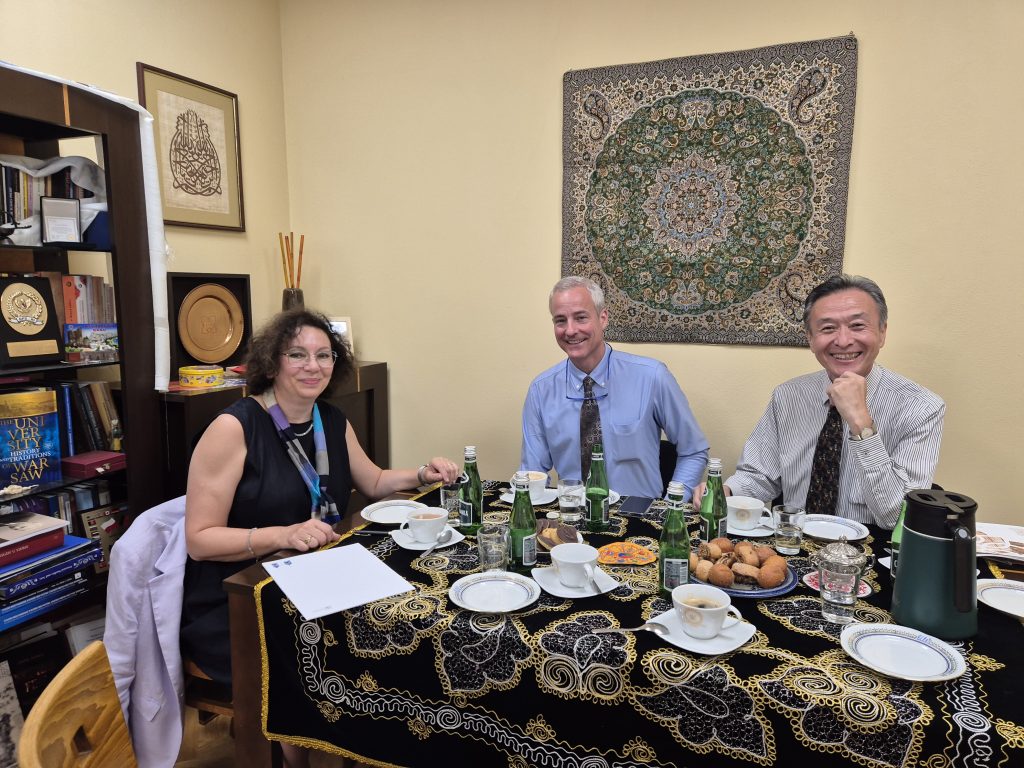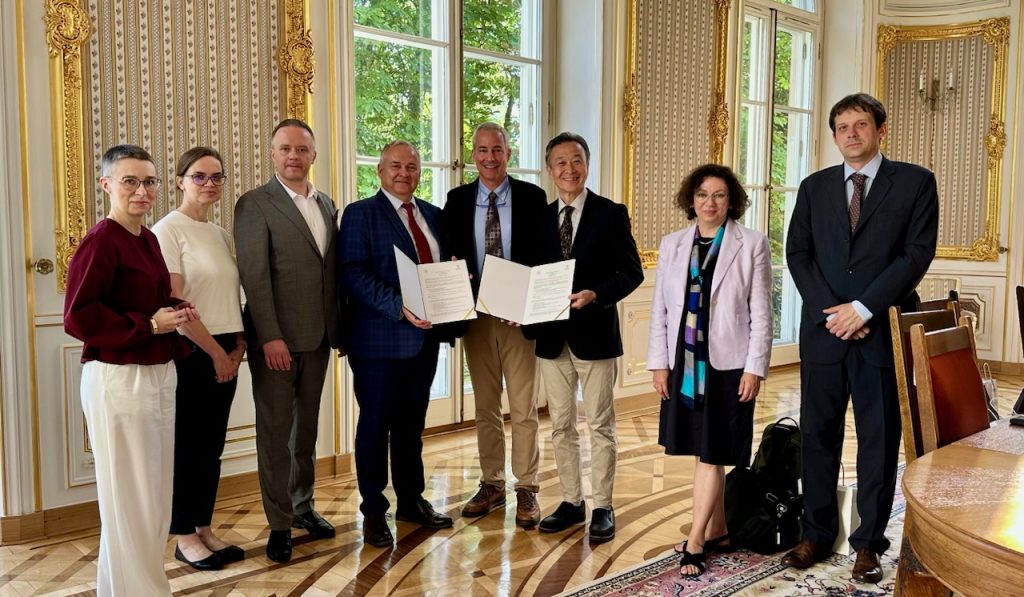On 5 September, we hosted a delegation from Musashi University (Tokyo): Mr Toshiaki Horikoshi, Director of the Office of International Relations, and Prof. Jason Hollowell, Director of the Global Education Center. The purpose of the visit was to finalise a Memorandum of Understanding on cooperation in academic and student exchange. Representing the University of Warsaw on behalf of the Rector were Vice-Rectors Prof. Sambor Grucza and Prof. Maciej Raś, as well as the Dean of the Faculty of Oriental Studies, Dr hab. Agata Bareja-Starzyńska, University Professor, and Dr hab. Józef Pawłowski, Vice-Dean for Finance of the Faculty of Oriental Studies.
Representatives of Musashi University (MU) actively took part in scientific events organised by the University of Warsaw in Japan in April and July this year under the NAWA programme “Kierunek EXPO 2025.” In addition, on 30 June in Tokyo a meeting was held between Dr Katarzyna Starecka, representing the Coordination Team of the “UW at EXPO 2025” project on behalf of the Faculty of Oriental Studies, and MU President Prof. Noriyuki Takahashi, MU Vice President Prof. Takuya Niiro, as well as Prof. Yasuo Ikeda, Director of Musashi Academy. Another meeting between the MU leadership and Dr hab. Iwona Kordzińska-Nawrocka, University Professor and Head of the Department of Japanese Studies at the UW Faculty of Oriental Studies, is scheduled for 17 September in Tokyo.
The origins of Musashi Academy (Musashi Gakuen)—which comprises Musashi University as well as Musashi Senior High School and Junior High School—date back to 1922. Since its founding, it has been guided by the idea of educating individuals open to the world, capable of realising “the national ideal of bridging Eastern and Western cultures.”
The following statement was provided by Prof. Jason Hollowell:
On behalf of Musashi University, I am honored to visit the University of Warsaw to sign our new collaboration agreement. Since the founding of Musashi Gakuen over 100 years ago, we have pursued internationalization as a central mission. In this spirit, we feel both honored and delighted to conclude an agreement with the University of Warsaw, a world-class institution whose distinguished Oriental Studies program has advanced knowledge for more than a century.
Musashi University has long emphasized the importance of understanding the world as a pillar of our philosophy. This tradition continues today through our renewed focus on the liberal arts and sciences, which provide our students with the tools to think critically, communicate across cultures, and engage with global challenges. Through the promotion of student exchange, faculty collaboration, and joint initiatives, we aim to create meaningful opportunities for our communities to learn from one another. In doing so, we hope to contribute to global understanding and foster the peaceful exchange of ideas across cultures and borders.
We look forward to building a strong and lasting relationship with the University of Warsaw, grounded in shared values of academic excellence, openness, and mutual respect.
—Jason Hollowell
Professor, PhD
Director, Global Education Center
Musashi University

